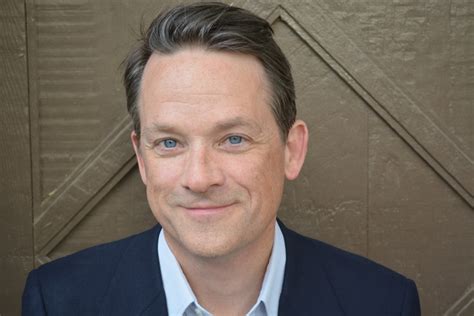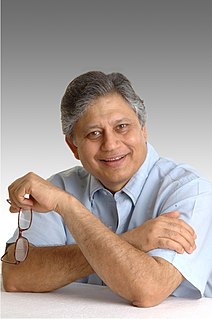A Quote by Deepak Chopra
A fixed habit is supported by old, well-worn pathways in the brain. When you make conscious choices to change a habit, you create new pathways. At the same time, you strengthen the decision-making function of the cerebral cortex while diminishing the grip of the lower, instinctual brain. So without judging your habit, whether it feels like a good one or a bad one, take time to break the routine, automatic response that habit imposes.
Quote Topics
Automatic
Bad
Bad One
Brain
Break
Cerebral
Change
Choices
Conscious
Create
Decision
Decision-Making
Diminishing
Feels
Fixed
Function
Good
Grip
Habit
Judging
Judging You
Like
Lower
Make
Making
New
Old
Pathways
Response
Routine
Same
Same Time
Strengthen
Supported
Take
Take Time
Time
Well
Whether
While
Without
Worn
Worn Path
Your
Related Quotes
Your god may be your little Christian habit - the habit of prayer or Bible reading at certain times of your day. Watch how your Father will upset your schedule if you begin to worship your habit instead of what the habit symbolizes. We say, 'I can't do that right now; this is my time alone with God.' No, this is your time alone with your habit.
The other producer of old age is habit: the deathly process of doing the same thing in the same way at the same hour day after day, first from carelessness, then from inclination, at last from cowardice or inertia. Luckily the inconsequent life is not the only alternative; for caprice is as ruinous as routine. Habit is necessary; it is the habit of having habits, of turning a trail into a rut, that must be incessantly fought against if one is to remain alive.
We must make automatic and habitual, as early as possible, as many useful actions as we can...in the acquisition of a new habit, we must take car to launch ourselves with as strong and decided initiative as possible. Never suffer an exception to occur till the new habit is securely rooted in your life.
We live in the Age of the Higher Brain, the cerebral cortex that has grown enormously over the last few millennia, overshadowing the ancient, instinctive lower brain. The cortex is often called the new brain, yet the old brain held sway in humans for millions of years, as it does today in most living things. The old brain can't conjure up ideas or read. But it does possess the power to feel and, above all, to be. It was the old brain that caused our forebears to sense the closeness of a mysterious presence everywhere in Nature.































